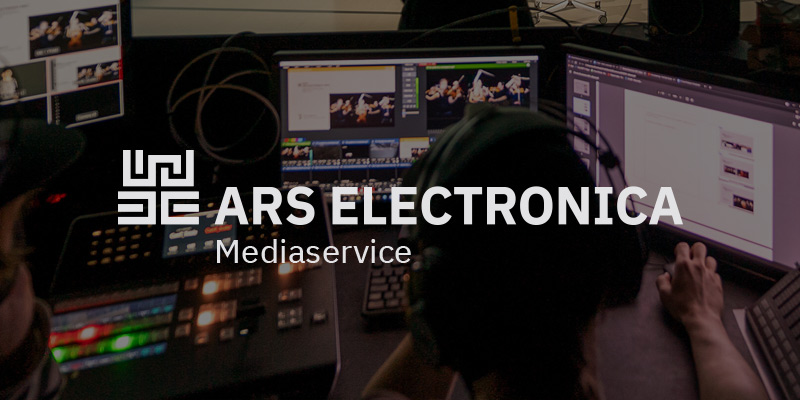Long Night of Research at the Ars Electronica Center
(Linz, April 11, 2018) Friday, April 13th is the Long Night of Research, and there’s a wide array of events on tap for visitors to the Ars Electronica Center—quickie tours of several exhibits, presentations about the security risks of smarthomes, a remote hookup to a nearby hospital’s operating room for a live glimpse of brain surgery, during which the surgeon will wear a headset to communicate with spectators in Deep Space 8K.
Here’s an overview of the program:
Art Installation “Death on the Internet”
5-11 PM / Lobby / A work by students at JKU Linz
This walk-through installation is about an internet user’s enduring postmortem presence online.
Art Installation “Earth Strata Model”
5-11 PM / Lobby / A work by Ars Electronica Solutions
This impressive installation shows vertically arrayed geological strata; in each one, additional information can be accessed. For instance, visitors can explore highly amplified sounds from inside the Earth.
Quickie Tour: Radical Atoms
5:30, 7:30 & 9:30 PM / Start in the Lobby
This exhibition showcases several trailblazing works by Boston-based MIT Media Lab that illustrate a new level of linkage between the digital and real worlds.
Quickie Tour: Spaceship Earth
6:30, 8:30 & 10:30 PM / Start in the Lobby
This tour conveys plenty of interesting insights into Earth observation via satellite, and elaborates on the many different conclusions that can be gleaned from the data thus gathered.
Quickie Tour: Behind the Scenes at the Ars Electronica Futurelab
7:30 PM / Start in the Lobby, with Horst Hörtner, director of the Ars Electronica Futurelab
The Ars Electronica Futurelab designs futuristic visions. Its R&D projects at the nexus of art and technology are meant as active input into configuring the world of tomorrow. On the Long Night of Research, visitors can get a behind-the-scenes look at Ars Electronica’s in-house R&D facility.
Presentation by Upper Austria University of Applied Sciences’ Hagenberg Campus: Internet of (Unsecure) Things. What dangers lurk in the smarthome?
5-11 PM / Lobby
Everybody’s talking about the Internet of Things, and, above all, smarthomes equipped with devices such as lighting controls, webcams, intelligent toys and infrastructure management systems. These electronics promise convenience but they also entail risks. In this presentation, visitors learn how these new gadgets function and which security problems have already emerged from them.
Presentation: g.tec medical engineering – Neuro-rehabilitation
5-11 PM / Lobby
8:30 PM / Talk with Katrin Mayr (g.tec medical engineering)
Hardware and software developed by g.tec medical engineering enable severely incapacitated individuals to communicate, and are used in rehabilitation following strokes or for coma patients. This presentation will showcase RecoveriX, a newly-developed technology for neurological rehabilitation. Visitors will be able to control a virtual hand using only their thoughts.
Deep Space Presentation: Cinematic Rendering
6:30 PM / Franz Fellner (Kepler University Clinic)
Images taken inside the human body enable us to better understand anatomy and how the whole body works together. They not only facilitate teaching and the planning of surgical procedures, but also improve doctor-patient communication. In this presentation, Dr. Franz Fellner will concentrate on the human brain.
Deep Space Presentation: Live Operation of a Brain Aneurysm
7 PM / with Andreas Gruber (Kepler University Clinic)
Visitors to Deep Space 8K can watch a live remote video of Andreas Gruber performing an operation on a brain aneurysm. Dr. Gruber will be wearing a headset to communicate directly with spectators.
Deep Space Presentation: Archeological Research in Upper Austria
8 PM / with Stefan Traxler (Landesmuseum)
Stefan Traxler, archeologist at the Museum of the State of Upper Austria, will elaborate on the institution’s ongoing projects in Deep Space 8K, and also explain how modern technologies are making archeologists’ work easier.
Deep Space Presentation: Die Streif Meets Artificial Intelligence / 9:30 PM/ with Ali Nikrang (Ars Electronica Futurelab)
For downhill ski racers, Die Streif in Kitzbühel is one of the world’s most difficult and dangerous slopes. An application developed by the Ars Electronica Futurelab to run in Deep Space 8K applies the shapes and colors of artists Wassily Kandinsky and Roy Lichtenstein to die Streif.
Deep Space Presentation: Media Art and Cultural Heritage / 10:30 PM
Visitors to Deep Space 8K can experience virtual reconstruction of historical sites in 3-D. But that’s not all! Deep Space 8K’s jumbo wall & floor projection surfaces and laser tracking system also make it an ideal venue to partake of leading-edge media art.
Photo:
Raumschiff Erde / Fotocredit: Florian Voggeneder / Printversion
Photo:
RADICAL ATOMS / Fotocredit: Florian Voggeneder / Printversion
Photo:
Cinematic Rendering / Fotocredit: Robert Bauernhansl / Printversion
https://www.youtube.com/watch?v=ADc6MNIBEtk&feature=youtu.be

